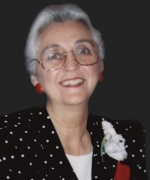
My 24-year-old daughter who sustained a TBI more than a year ago wants to rejoin her social circle. I am worried that this means she will use alcohol and possibly other substances. How should I handle this?
This is a difficult question to answer without more information. Your first thought, of course, is to protect your daughter. But on a general level, what we do know is that alcohol often has an exaggerated effect on an injured brain; one beer may have the effect of three beers and can further compromise cognitive issues such as judgment, impulsivity, problem-solving, decision-making, and disinhibition. Illegal substances are not only harmful but they can increase the risk of a second brain injury as well as problems with the law. Alcohol and recreational drugs are dangerous when used in conjunction with prescription medications commonly used after brain injury for the treatment of seizures or psychological disorders.
The steps you take next depend on many factors including your daughter's level of functioning, the services she is currently receiving, your mother/daughter relationship, and the willingness and ability of her friends to provide support.
For people with significant challenges, there is a wonderful model you may want to look at called the Circle of Friends. This is a step-by-step process for building a social support network.
If your daughter has a treatment team, counselor, or coach, talk with them about how to handle this complex issue. If you do not have professional support, you might want to consult a mental health professional with expertise in this area. Ideally, your daughter would be aware of her own limits and would talk with her friends to enlist their help in keeping her safe.
If possible, work with your daughter and her friends to develop a plan for gradually reentering her social circle — starting with brief daytime outings and progressing to longer activities with less supervision. For all of these suggestions, open, nonjudgmental communication is crucial.
About the author: Carolyn Rocchio
Carolyn Rocchio is a nationally recognized advocate, author, and speaker in the field of brain injury. Her expertise in brain injury developed as a result of a 1982 auto crash in which her son sustained a severe traumatic brain injury.


Comments (5)
Please remember, we are not able to give medical or legal advice. If you have medical concerns, please consult your doctor. All posted comments are the views and opinions of the poster only.
Anonymous replied on Permalink
As someone who has had a TBI for over 27 years, I can tell you this: If she drinks and does the other stuff, you can't stop her (not to be mean or anything, sorry if that did sound cold). If she didn't have the injury, would she do those same behaviors? Being only 1 year out after her injury, depending on the severity, she might revert back to her old behaviors, but that's a 50 / 50. I've found that many people who suffer from a TBI make the wrong decisions like they were back living like they were teenagers, but that's also dependent on where the most significant damage was done on her brain. There are many factors that shape a person who has had a TBI.
Anonymous replied on Permalink
Anonymous replied on Permalink
I am a physical therapist and I was one of the physical therapists working with Tim Rocchio at North Broward Medical Center in 1982. I recall Anita the speech therapist as well. Paul was the rehab director at that time. I would love to contact either Anita or Carolyn is there anyway I can do that. Taryne PT
Anonymous replied on Permalink
I have really appreciate BrainLine's work. I would like to interject on the individual knowing their limits. The brain naturally enjoys the alteration and will want more to a point where it is unhealthy typically speaking. Teach them responsible use. Think of it in doses.
Anonymous replied on Permalink
We are dealing with this now. But our son has no friends to take him out. He lives in a nursing home. Any comments?